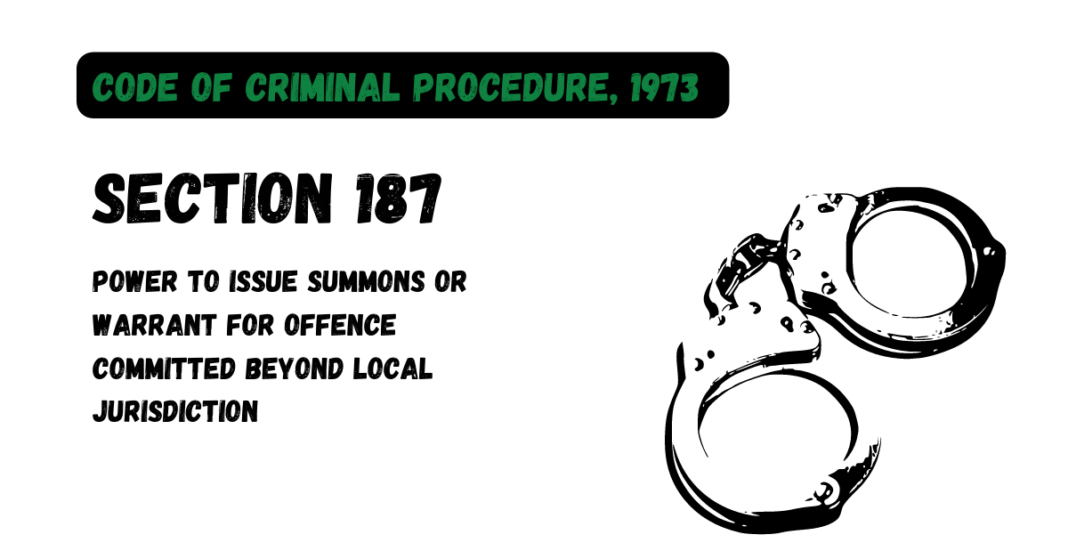(1) When a Magistrate of the first class sees reason to believe that any person within his local jurisdiction has committed outside such jurisdiction (whether within or outside India) an offence which cannot, under the provisions of sections 177 to 185 (both inclusive), or any other law for the time being in force, be inquired into or tried within such jurisdiction but is under some law for the time being in force triable in India, such Magistrate may inquire into the offence as if it had been committed within such local jurisdiction and compel such person in the manner hereinbefore provided to appear before him, and send such person to the Magistrate having jurisdiction to inquire into or try such offence, or, if such offence is not punishable with death or imprisonment for life and such person is ready and willing to give bail to the satisfaction of the Magistrate acting under this section, take a bond with or without sureties for his appearance before the Magistrate having such jurisdiction.
(2) When there are more Magistrates than one having such jurisdiction and the Magistrate acting under this section cannot satisfy himself as to the Magistrate to or before whom such person should be sent or bound to appear, the case shall be reported for the orders of the High Court.





